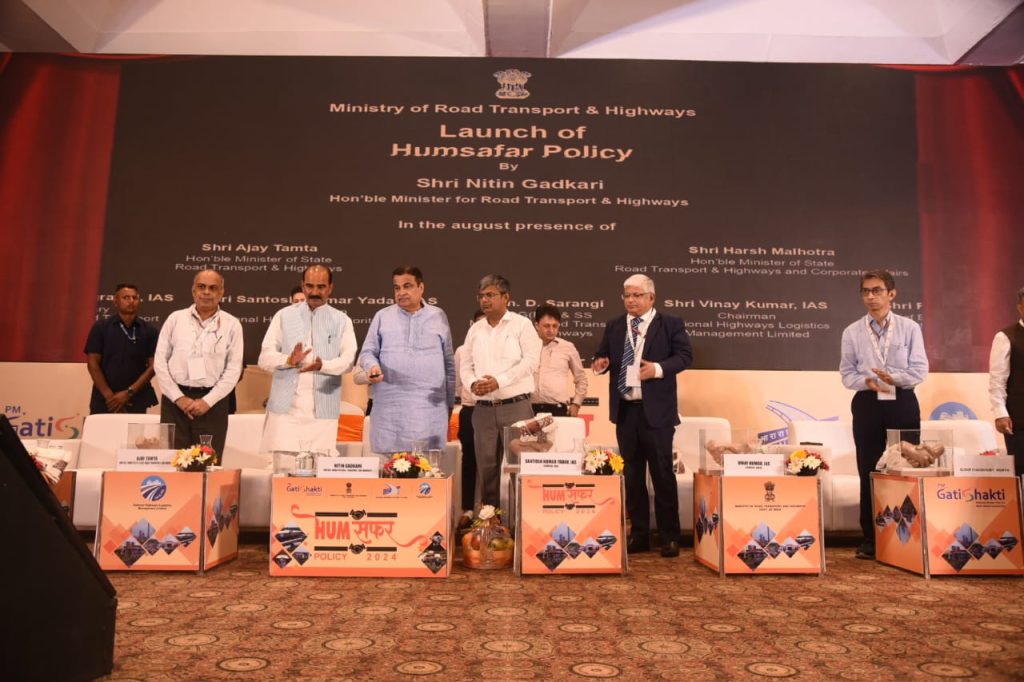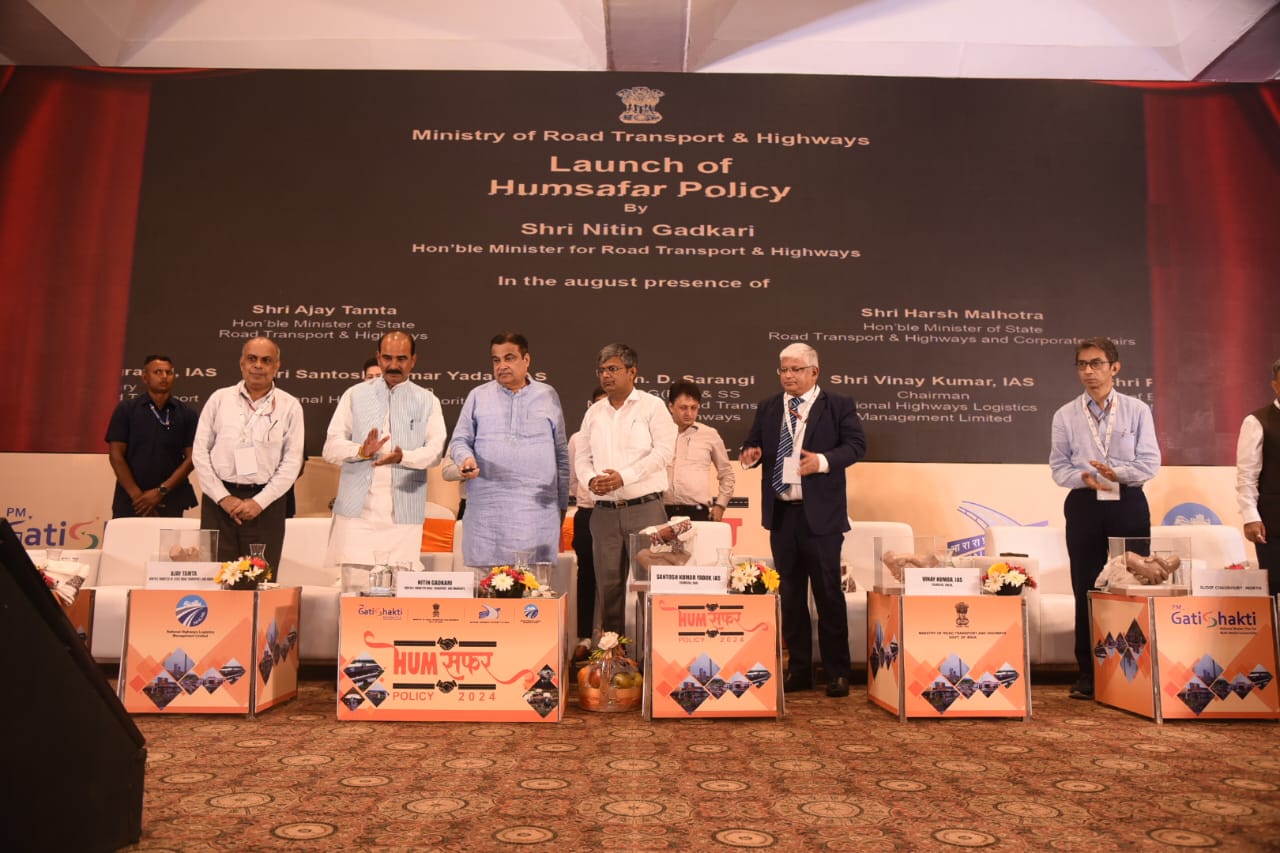New Delhi: In a move aimed at transforming the travel experience along India’s National Highways, Union Minister for Road Transport and Highways, Nitin Gadkari, unveiled the “Humsafar Policy” in New Delhi. The policy promises to enhance convenience, safety, and eco-friendly infrastructure for commuters, with a strong focus on standardizing wayside amenities.

At the event, attended by various key stakeholders including Ajay Tamta, Minister of State for Road Transport and Highways, Gadkari emphasized that the Humsafar Policy is designed to uplift marginalized communities by offering them business opportunities in highway amenities. “This initiative ensures a smooth, safe, and pleasant journey for all commuters while prioritizing environmental conservation and cleanliness,” stated Gadkari. The policy incorporates water and soil conservation, waste recycling, and the promotion of solar energy to create a sustainable highway network.
Comprehensive Facilities for Travelers
The Humsafar Policy mandates the development of well-equipped facilities along highways, including food courts, cafeterias, fuel stations, EV charging points, parking areas, baby care rooms, ATMs, pharmacies, and repair shops. Emphasizing the need for quality, Gadkari instructed officials to maintain high service standards and urged petrol pump owners to meet the stipulated norms for basic amenities.
Ajay Tamta further highlighted the significant infrastructure strides made under Gadkari’s guidance, noting that 1.5 lakh kilometers of highways have been developed, in line with the Prime Minister’s vision for national connectivity and growth.
Boost for Service Providers via ‘Rajmarg Yatra’ App
The policy also seeks to digitally empower service providers through the National Highways Authority of India’s (NHAI) ‘Rajmarg Yatra’ app, offering them enhanced online visibility. Existing and new service providers, including eateries, fuel stations, and trauma centers, can register under the Humsafar Policy to benefit from fee waivers and the ability to display signages along highways. The app will enable commuters to locate nearby facilities, report issues, and provide ratings, which will influence service provider evaluations and inspections.
Ensuring Quality Through Rigorous Monitoring
A robust inspection framework is embedded within the policy. A third-party agency will conduct regular inspections to ensure facilities meet the stipulated standards. Providers will receive alerts if their ratings drop below the required threshold, prompting additional inspections and guidance for improvement.
The Humsafar Policy sets a new benchmark for highway travel in India, aiming to deliver a world-class experience with standardized, hygienic facilities and modern amenities. The launch event saw participation from senior officials, representatives of the NHAI, hospitality companies, oil marketing firms, EV charging providers, and industry experts, underscoring the collaborative approach driving this initiative.








